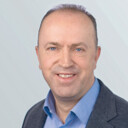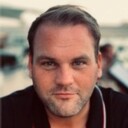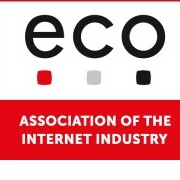20 Years of CloudFest: The World’s Largest Cloud Conference
Twenty years of innovation & collaboration have been celebrated at CloudFest, with EuroCloud’s Michael Hase catching up on the event's significance with its organizers.

©elenabs | istockphoto.com
At this year’s CloudFest at the Europa-Park in Rust, Germany, the community gathered from 18 to 21 March under the motto of “Uniting the Nations of Cloud.” At the same time, the participants got to celebrate the 20th anniversary of the CloudFest event.
The very first time that this event took place was in 2004 in Cologne. At that time, it was called the WebHostingDay and was attended by just 150 participants. Since then, the event – which, since 2018, has been called CloudFest – has grown steadily and become the world’s largest cloud conference. This year, more than 8,000 visitors from all over the world took part at the event. In marking the anniversary, we caught up with the initiator of the event, Thomas Strohe, as well as the CEO of CloudFest, Christian Jäger, and the Head of EuroCloud Germany, Dr. Nils Kaufmann. In our interview, we talked about the development of the community get-together, as well as its importance for the hosting and cloud market.
Michael: In 2004, CloudFest was first held in a relatively small setting under the name of WebHostingDay. Over the years, it has evolved into the world’s largest cloud conference. What motivated you back then to create a new event, and what remains of that spirit to this day?
Thomas: The impetus back then was to create an independent networking event for our industry. And the same impetus still motivates us today: we organized an event where all market participants came together around a “table” and, beyond commercial interests, reflected on and discussed how they could collectively further develop our industry. The “table” has grown bigger and bigger over the years and moved initially from Cologne City to Phantasialand in Brühl, and subsequently to Europa-Park in Rust, Germany. But the spirit has remained the same, even after all of these years.
Back in 2011, Christian, as a working student you joined the Intergenia Group, which was the former proprietor of the event. Back then, it moved in Germany from Brühl to Rust, and was then known as WebHostingDay. Since then, what do you see as the most striking changes in the hosting and cloud market?
Christian: When I started, there were two assumptions. Firstly, the notion that “shared hosting and virtual private servers are dead.” Secondly, nobody could really imagine that large European companies would move to the public cloud. But neither of these theories turned out be true. Even though “shared hosting” is no longer the term of the hour, the principle is still similar to that of the cloud. In the meantime, however, the customer-facing side has moved rapidly forward. The fact that there is almost no longer any talk about the underlying technology is simply because the end customer has little interest in how many cores their system contains: they want it to run, and to run quickly. With the public cloud, we have now reached the point where many customers have outsourced at least parts of their workloads. Interestingly, there is now a counter-movement, away from the “silos” of hyperscalers and back to in-house solutions or partnerships with IT experts such as EuroCloud members.
Michael: When the first WebHostingDay took place, Nils, you were still successfully operating in the German automotive market with your Smart Repair group, called “Doktor Lack.” When did you take part in the event for the first time, and what do you recall from that time?
Nils: After the sale of my group, I entered the IT industry at the end of 2008 and attended the WebHostingDay at Phantasialand for the first time in March 2009. Growing up in the Rhineland in Germany, and knowing the location from my childhood and teenage years, I found it both strange and funny to see men in suits with briefcases riding on the colorful carousels! Back then, most of them still wore ties and fancy shoes from their high school prom. Apart from remembering how most of the offers and conversations revolved around shared hosting, at that time one slot created a sustainable impression for me. There was a guy on stage like a beach boy from California, tanned, wearing shorts and a colorful shirt, talking about a new trend called cloud and the endless possibilities. I found that mega cool from a business and marketing perspective. Shortly after that, I had an in-depth conversation about this with my former CTO. He told me that this cloud thing was nonsense, didn’t work and that nobody needed it anyway.
Michael: This skepticism existed back then, as Christian also mentioned. But, over the past decade, hyperscalers have become a dominant force in the market. How has the classic hosting market changed under the pressure of the cloud giants?
Thomas: From my perspective, even with the emergence of hyperscalers, the market has not really changed fundamentally in recent years. Of course, the large cloud providers are important and dominant market players. But at the same time, the market as a whole has grown very strongly over the past few years. This has created good opportunities for both traditional hosts and hyperscalers. Every year at CloudFest, we have seen this collaboration evolving among different types of market participants.
Michael: What prompted you all to rename the event to “CloudFest” in 2018?
Christian: We had the feeling that the term “Hosting” was outdated for the general public. Outside of our bubble, people only talked about cloud computing, even though for our core audience it’s more of a technology: hosting still happens today, and we still talk about hosts and hosting. But also, by changing the name externally, we could clarify the shift towards the cloud and significantly expand our visitor base. Today, IT representatives from corporations, as well as many system houses, are an integral part of our community. I don’t think CTOs and CIOs from large corporations would have come to CloudFest if we only talked about hosting.
Michael: That brings us to the spotlight: From your perspective, what does CloudFest stand for today, Nils?
Nils: This year’s motto “Uniting the Nations of Cloud” has summed it up perfectly. The first thing that this brought to mind was the many ethnicities and cultures – in other words, the wide range of people who gathered together at our recent event. That alone is an invaluable asset nowadays. But what has changed since my first CloudFest or WebHostingDay is the incredible increase in complexity regarding technical topics, the opportunities, and the challenges of the market. This has resulted in a much broader audience spectrum coming together at these events. One magic word is “collaboration,” which is the case now more than ever before. Because only together as providers and service providers are we able to fully serve our customers. No one can do it alone anymore. So, these are the other nations that have come together at our recent “Uniting the Nations of Cloud” CloudFest.
Michael: As a Board Member of EuroCloud Deutschland, why do you take part in the CloudFest events?
Nils: For me, as an IT market participant in German-speaking countries, CloudFest was and is the most important community event of the year. EuroCloud Germany is the association of the cloud computing industry and advocates for the acceptance and demand-driven provision of cloud services on the German market. In this respect, the participation at our recent event was naturally and extremely attractive.
As Manager EuroCloud, Michael Hase is responsible for coordination and further development of cloud topics at eco. He joined the association in November 2023. Prior to that, he worked for more than 20 years as an IT journalist and wrote for industry magazines such as IT-Business and CRN. His focus was on the ecosystems within the IT market.
Christian Jaeger, CEO of CloudFest, has been responsible for the organization that hosts the CloudFest, MSP GLOBAL and NamesCon events since 2021. He previously held various management positions at hosting providers GoDaddy and plusserver, among others. He has been involved in the WorldHostingDays, the forerunner of CloudFest, since joining Intergenia as a working student in 2011.
Nils Kaufmann has been a member of the Board of EuroCloud Germany since August 2023. He also founded the EuroCloud Native (ECN) initiative back in 2020, which he still heads today. In his main job, he is responsible for vshosting’s business in the DACH region as CEO. Kaufmann has been working in the hosting and cloud industry since 2008.
Thomas Strohe is the quintessential entrepreneur. He has been involved in more than 20 companies, either as a founder or by supporting the founders as an investor. In 1999 he founded the hosting provider Intergenia, which included brands such as plusserver, serverloft, and server4You. In 2004, he launched WebHostingDay, which later became CloudFest.









